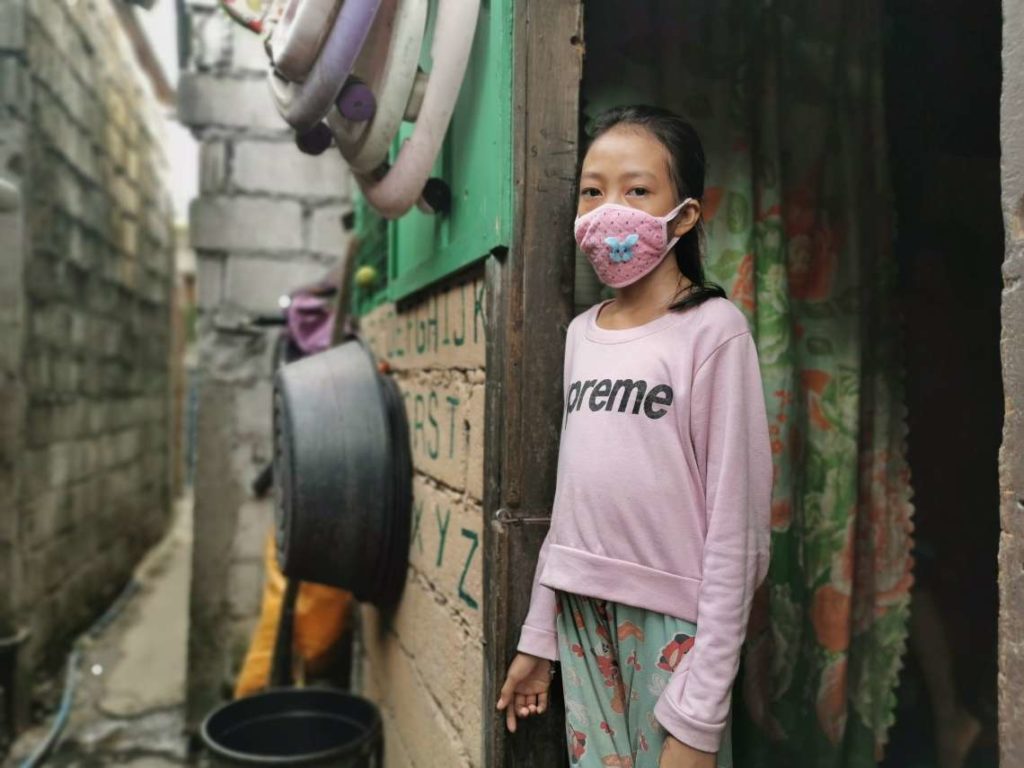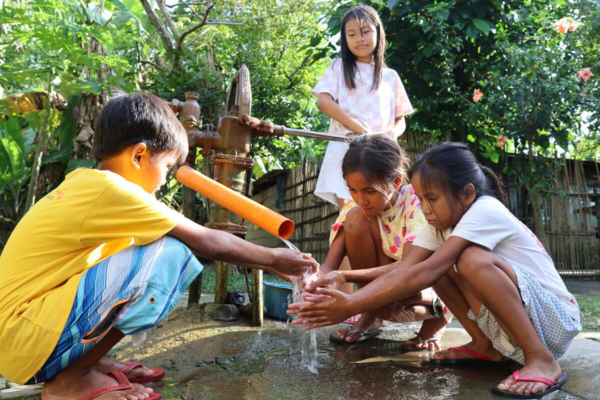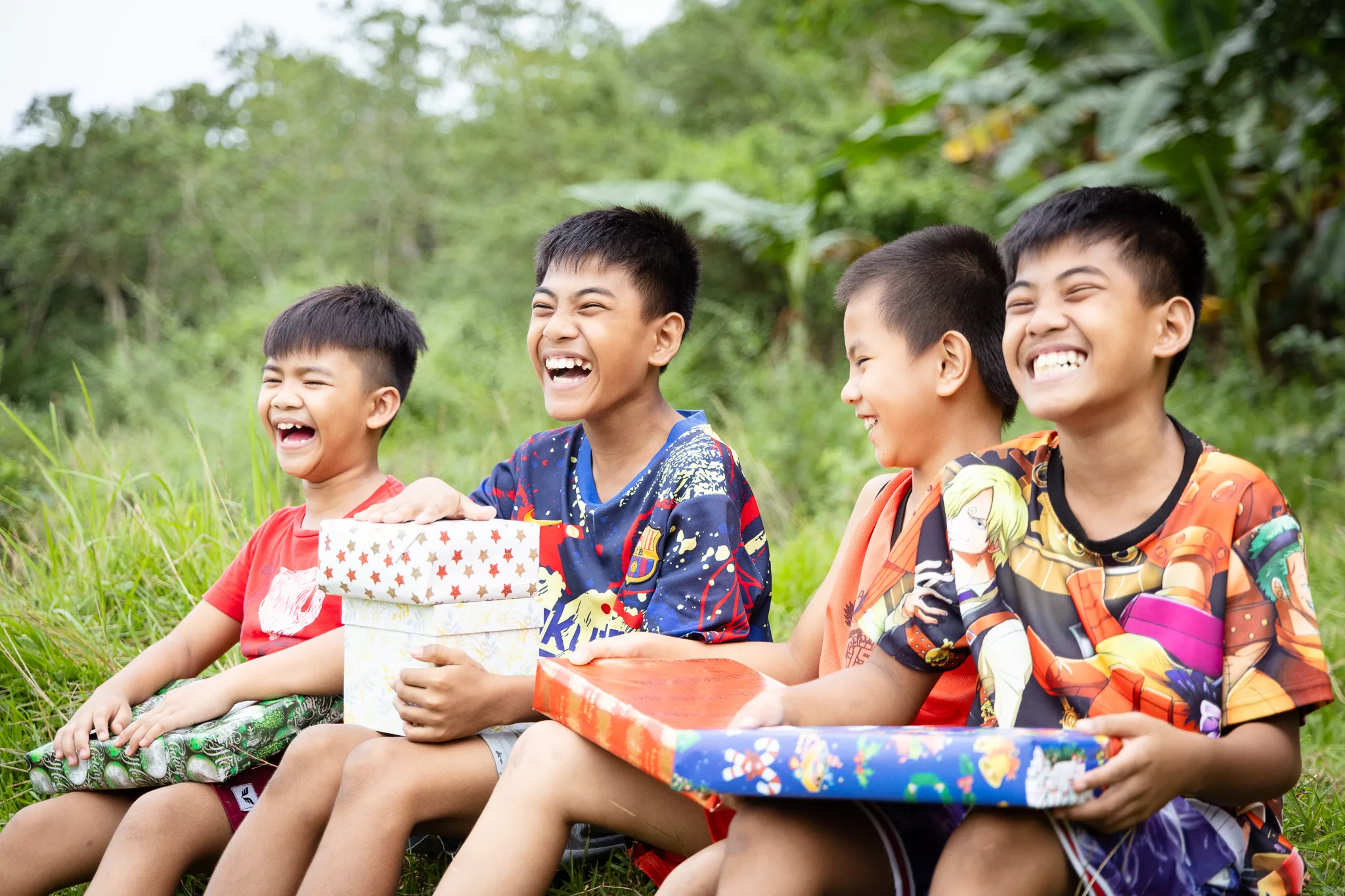Statement of World Vision Philippines on promoting child rights amidst the COVID-19 emergency response

The COVID-19 global pandemic continues to be an overwhelming challenge for the government, organizations, and communities in the Philippines. As of April 21, 2020, there have been at least 6599 confirmed Covid-19 cases, 437 deaths and 654 recovered in 17 regions of the country. (Source: https://ncovtracker.doh.gov.ph/) while the enforcement of the Enhanced Community Quarantine (ECQ) in Luzon has been extended until April 30.
The government has implemented the enhanced community quarantine in several parts of the country to prevent the spread of COVID-19. All schools and several workplaces were closed, and gatherings of people are restricted.Public transportation is suspended until further notice. Everyone is encouraged to stay at home, if they do not have essential duties outside.
Despite these measures, several challenges make it difficult to contain the disease.
Healthcare providers are at the forefront of the response. However, hospitals are running low on personal protective equipment (PPE) and are currently understaffed because several health workers had to be on quarantine due to exposure. In response, several organizations have set up initiatives to help the government fill in the gaps in PPE and other resources during this time of crisis.
How does this affect children?
World Vision has significant concerns that the spread of COVID-19 and efforts to contain the virus may increase the risk of neglect and violence against children. Our five priority concerns for children are:
- Deteriorating physical and mental health/Lack of access to basic health services;
- Unprecedented challenges for provision of humanitarian assistance to children;
- Increased child protection risks;
- Disruption to education; and
- Lost family income/livelihoods and resultant food insecurity.
World Vision Philippines’ COVID-19 Emergency Response
World Vision Philippines, as the largest non-profit organization in the Philippines, is continuing to assist communities through complementing government efforts in the COVID-19 response. Children have not been significantly affected by the illness but they are vulnerable to the cascading impacts brought about by the pandemic.
The organization intensified COVID-19 awareness-raising campaigns starting January 2020. Through this initiative, World Vision reached 66,500 individuals within our served communities, especially in rural areas where access to information is limited.
World Vision makes use of its website and social media accounts to raise awareness on how people can protect themselves, and how to cope with the ongoing crisis. These informative materials also focus on areas of impact to children: health, WASH, disrupted education, and mental and psychological health.
There is also ongoing fundraising through online platforms. Proceeds will be used to provide family sanitation kits (toiletries, face masks, alcohol, and hygiene/hand-washing promotional materials), basic health facility disinfection kits (cleaning gloves, spray, cleaning chemicals) and personal protective equipment for healthcare workers (face shields, respiratory masks, surgical caps, gloves, etc.). World Vision also provided a mobile storage unit and tents that hospitals can use as isolation areas.
Key Recommendations
To reduce the risk of violence against children during the COVID-19 crisis, World Vision recommends the following.
Governments should:
- Implement mass testing for PUIs and PUMs and frontline health workers and service providers.
- Support parents and caregivers to provide and care for their children by providing the most vulnerable families with free access to healthcare, urgently needed food, hygiene, sanitation items and cash assistance support to overcome the immediate and long-term impact of crisis.
- Refrain from using government resources for personal publicity/campaign in the guise of helping affected populations.
- Protect and care for children living on the streets, without parental care, or who have been separated from or lost their parents or caregiver due to the disease. The government’s response should include alternative care provisions for street children and those who have been separated from or lost their parents or caregiverbecause of the virus, as well as a mechanism to monitor situations of child-headed families.
- Ensure access to social protection measures for the most vulnerable children. Children benefiting from feeding programs and other school-based social protection measures should continue receiving these benefits in out-of-school settings. This may include delivery of meals for the most vulnerable families.
- Provide mental health and psychosocial support to assist children and families. This may include the provision of free hotlines, online programs and counselling options or community outreach programs, when possible.
- Ensure access to online/tele- education for all by using child-friendly distant education methods such as TV, radio or online learning. Schools should continue to provide life skills education to help children recognize risks and mitigate them as a part of curriculum delivered online.
- Ensure continued functioning of the child-friendly reporting mechanisms such as SOS hotlines to report any incident of abuse or exploitation.
- Inform children and families of the COVID-19 pandemic and measures being undertaken to contain it to reduce stress and anxiety. This should include child-friendly information on how to recognize the disease and protect themselves. As a part of information sharing and messaging to prevent and deal with the epidemic, the government can also provide parents with online positive parenting trainings to equip them to deal with the crisis and support their children.
- Activate community-based child protection mechanisms such as community reporting & referral and Barangay Councils for the Protection of Children to act on identified child protection incidents.
- Maximize use of TV, radio, text messaging, and social media to disseminate relevant information to protect children during the community quarantine period.
Employers and private companies should:
- Provide paid leave and flexible working arrangements for all parents and caregivers, especially those caring for small children, who need to stay at home due to the response measures or to care for their children.
- Provide access to free education and collaborative software, and offer support in providing tablets and computers for online learning especially for the most vulnerable children.
- Information Technology companies should use this opportunity to strengthen measures to protect children from all forms of violence including bullying and sexual exploitation.
Donors should:
- Maintain or scale up investments in programs aimed at ending violence against children and encourage governments and other stakeholders to integrate child protection interventions into their response measures from the onset.
- Support the provision of alternative learning programs to ensure continuity of learning for children during this crisis.
Churches and Faith-based organizations should:
Adapt outreach and programming (including virtual) to reach the most vulnerable children and address potential child protection risks, contributing to ending violence against children.
World Vision Philippines commits to working hand-in-hand with the Philippine Government, the private sector, other humanitarian organizations, and communities to achieve these recommendations and to protect child rights amidst the ongoing COVID-19 response. Together, we can work to overcome this crisisand continue building a good future for the Filipino children.








